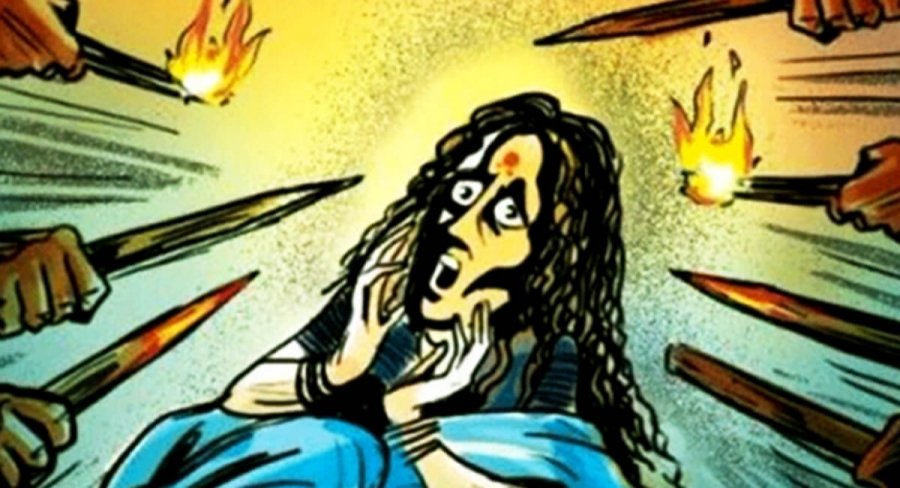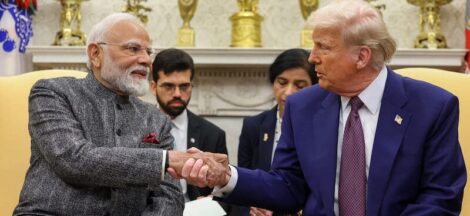By Dr. Gyan Pathak
The game of political hunting, which is typically characterised in India by cases, raids, seizures, and arrests, which generally do not lead to conviction, but enable the government to pin its adversaries down for years without trial in cases registered by the Enforcement Directorate (ED), seems to be reaching its climax. The latest chargesheet alleging money laundering has been filed by ED against the Congress Parliamentary Party chairperson Sonia Gandhi, and the Leader of the Opposition in Lok Sabha Rahul Gandhi the leader of the main opposition Congress, which has triggered a nationwide massive agitation of Congress rank and file outside ED offices on Wednesday April 16 across states terming action against Gandhis as ‘political vendetta’.
How is this game of political hunting being carried on by the ruling establishment led by PM Narendra Modi? By now, the modus operandi is well known. Corruption cases registered by state of UT police are taken up or registered a fresh by CBI. The same cases are taken up by ED on later stages, when political adversaries are likely to get bails in original cases. ED then starts actions – filing cases with new charges, conducting raids, making seizures, and arrests. It cripples the political activities and effectiveness of the opposition leaders, because their physical movement are checked and their money confiscated. ED investigations continue for indefinite period, and the opposition leaders are just pinned down, of even jailed, without trial.
ED is currently responsible for implementing the Prevention of Money Laundering Act, 2002 (PMLA), the Foreign Exchange Management Act, 1999 (FEMA), and the Fugitive Economic Offenders Act, 2018. On March 18, 2025 in the government reply to a question in Rajya Sabha, Union Minister of State for Finance Pankaj Choudhary had admitted that out of 193 cases registered by ED against political leaders over the last ten years, only two led to conviction.
Earlier in November 2024, the Supreme Court of India, while hearing a bail plea of a TMC MLA, had questioned how long an accused could be kept undertrial? The court was not satisfied by the ED’s performance in their cases against politicians, in particular and all cases in general. Actually, the Supreme Court has commented on multiple occasions about the low conviction rate in money laundering cases. Earlier the Supreme Court had pointed out that of the 5000 cases filed by ED in the past ten years, only 40 resulted in convictions.
Obviously, ED either fails to collect judicially reliable evidence against the accused political adversaries of the ruling establishments, or the opposition leaders are just implicated for which no evidence can ever be found. In both the cases, such a state of affair is a serious concern for the very survival of the democracy in the country.
The allegation that the Modi government has been intimidating the opposition political parties and their leaders to make them submit to the dominance of the ruling establishment or join them, or align with them. The opposition leaders facing ED or CBI cases, when join the BJP or NDA, their tribulations cease to be, since the cases are either shelved or ED starts going slow in action against them. The opposition call it “Modi Washing Machine” in which all the taints of crime and corruption is cleaned.
PM Narendra Modi has alleged several times that the opposition political parties are only a pack of corrupt politicians, especially who have been associated with INDIA bloc. He has vowed to take action against them. He has actually made a sweeping statement, since a state or its leader is not free to call all politicians in the opposition corrupt without evidence, when we have enough reason to believe that ED had not enough evidence in the cases against politicians in last ten years which led to very low conviction of even less than 1 per cent.
ED actions, omissions and commissions, are thus not entirely the matter of enforcement of law, especially when it involves politicians. We have numerous examples in which the nature of ED actions seen depended on which side the accused politician belonged to – the opposition or the ruling establishment, or which side the accused politicians switched over. ED is seen lenient on accused politicians aligning with the ruling establishment while very harsh on the accused opposition politicians.
Then comes the merit of the cases. The low conviction rate of ED cases against politicians shows that in most of the ED cases, the courts did not find merit. If it is not a game of political hunting, what else it can be, and to conclude it one does not need to go into the merit of every case, which is to be decided by the competent courts.
ED actions have gained new momentum in recent times. In a span of few days, Kerala CM’s daughter, RJD Supremo Lalu Yadav and his family members, Congress leaders Rahul Gandhi and Sonia Gandhi, MP Priyanka Gandhi’s husband Robert Vadra, other Congress leaders in Rajasthan and Chhattisgarh, AAP and DMK politicians etc have been subjected to fresh ED actions.
All these are indicative of the approaching climax in the game of political hunting in India. BJP has accused the Congress of intimidating the ED by their protests across the country against ED chargesheet against Sonia Gandhi and Rahul Gandhi, and alleged the Congress party and its leadership corrupt.
Congress on the other hand has criticised the ED chargesheet against Sonia Gandhi and Rahul Gandhi in the National Herald money laundering case saying it “nothing but the politics of vendetta and intimidation” carried out by Prime Minister Narendra Modi, and home minister Amit Shah gone “completely berserk”. (IPA Service)




 Supreme Court Signals Temporary Halt on Key Waqf Act Amendments
Supreme Court Signals Temporary Halt on Key Waqf Act Amendments 